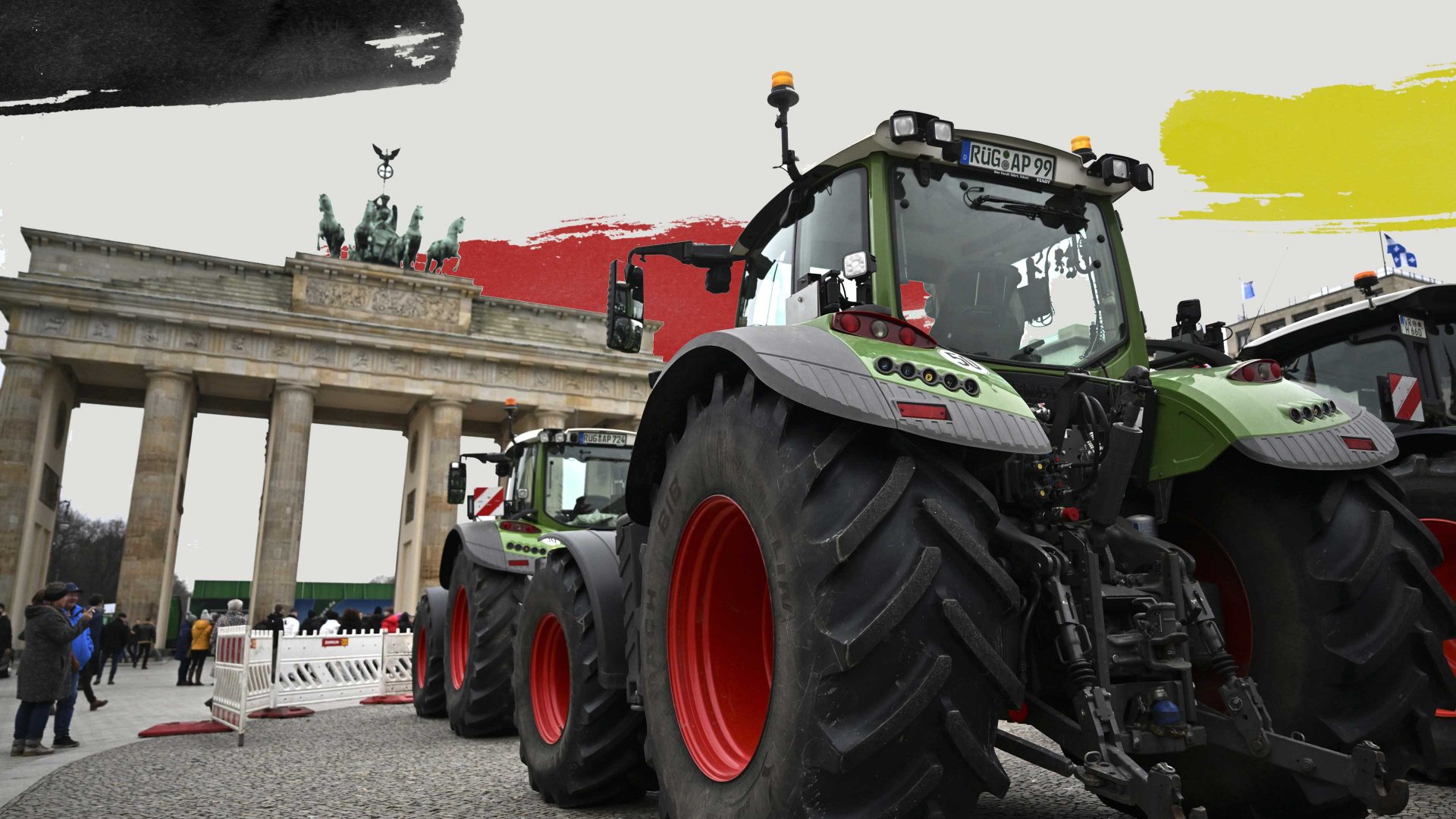In 1524, the illustrious Martin Luther dropped a literary bomb titled Against the Murderous, Thieving Hordes of Peasants. He was responding to the Bauernkriege, the peasant wars in what is now south-west Germany. The revolts sprouted from the frustration of heavily taxed and disenfranchised farmers.
Luther called for the rebels to be put down like mad dogs. The ruling aristocrats needed no second invitation, resulting in the killing of 70,000 peasants, who were no match for their opponents’ military experience and equipment.
Five hundred years and countless agricultural subsidies later, Germany faces the modern peasant uprising: tractors jamming the Autobahn.
The catalyst? A budget crisis is forcing the German federal government to fill a whopping gap of €17bn (£14.6bn). Among all the cuts, December saw a decision to axe farmers’ diesel fuel subsidies as well as tax breaks for new agricultural machines. The projected savings of €1.5bn seemed disproportionately hefty for the farming sector to suffer, compared with what was being asked of larger industries.
Undeniably, farming receives a disproportionate chunk of state aid, too, both nationally and from the EU (€7bn). In addition, the last year has proved profitable for farmers, despite a bit too much rain. Experts estimate that the budget plans would only cost them an average of €3,000 to €3,500 each. However, depending on the size of your farm, the cost could soar three to four times higher: large-scale crop cultivators, for example, need more fuel and machinery than small fruit farmers.
Fanning the flames are the competitive disadvantages German farmers face compared with their European neighbours. Take fuels: a farmer from Avignon can use heating oil (€0.68 per litre) in tractors, while a Bauer from Brandenburg would risk criminal charges in doing the same. Our farmers are stuck with diesel (€1.65/litre).
Per hectare, farmers in Germany pay around €100 more than their French, Belgian or Dutch counterparts, and given that the average German farm is 63 hectares, this quickly adds up to thousands of euros.
Ditching diesel subsidies would hit eco-friendly farmers harder: the lower use of herbicides requires more mechanical weeding.
From the farmers’s perspective, there’s a laundry list of inequalities: lower minimum wages for farm workers in Spain, less-regulated pig breeding in the Netherlands, and the German ban on systematically culling male chicks forces some farmers to give up chick-breeding entirely in favour of imports from abroad (where male chicks still have zero life expectancy). The Common EU Agricultural Policy isn’t as common as it pretends to be…
Stripping away diesel subsidies and tax breaks would undoubtedly make life and work harder for farmers – who noted with resentment that the government wasn’t going after subsidised company cars or plane fuels.
So when the three-party coalition announced the plan with less than a month’s notice, tempers flared. After an initial outcry and tractor parade at the Brandenburg Gate, the government yielded, postponing the cuts. But the feisty farmers won’t be soothed, they want the plans binned entirely. The president of the Farmers’ Association promised “protests the country has never seen before”, threatening to “paralyse Germany”.
A loud group of protesters have already stopped Green Party minister Robert Habeck from disembarking a ferry at a small North Sea port. And while French farmers with decades of experience in occupying government buildings, setting things on fire and attacking police (or Spanish tomatoes), still hold the benchmark for agricultural revolutionaries, the newly coined German Mistgabel-Mob (dung fork mob) is swiftly gaining ground.
The protests could offer farmers a chance to connect with the general population. Unfortunately, the current conversation fixates on “discourse and protest culture”, not on the future of energy-intensive agriculture or how to reform a subsidy system that favours scaling and specialisation of agricultural holdings over individual farms.
Some point out that farmers have little to do in January and a lot of time for tractor rallies. But on closer inspection, the budget cuts merely serve as the last straw. The farmers’ sentiment reflects a massive frustration with the government felt by most Germans. This heated January might just be a foretaste of the rest of the year.




